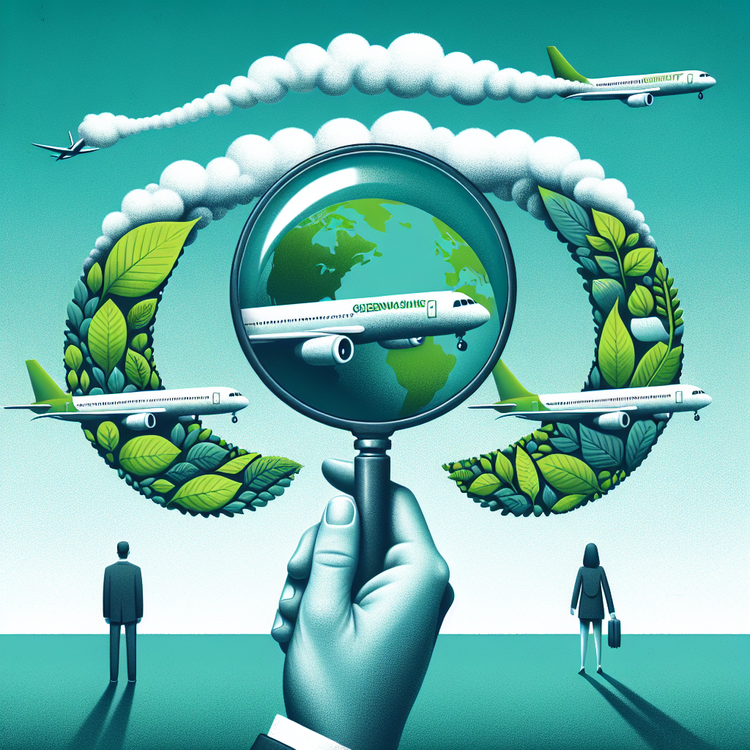Many children around the world are having trouble seeing things far away. This problem is called myopia, or being short-sighted. The number of children with myopia is growing, especially in Asia. Using screens a lot and not playing outside enough are making it worse, especially during the Covid lockdowns.
During Covid lockdowns, kids stayed inside more, which hurt their eyesight. By 2050, more than half of teenagers might have myopia. Girls might get it more than boys because they spend less time outside. Experts say kids should play outside for at least two hours every day to help their eyes.
Parents can help by making sure kids play outside and get their eyes checked regularly. Myopia can’t be cured, but glasses or contact lenses can help. Special lenses can also slow it down in kids. Taking care of kids’ eyes now can help prevent problems when they grow up.
Original news source: One in three children short-sighted, study suggests (BBC)
🎧 Listen:
Slow
Normal
Fast
📖 Vocabulary:
| 1 | myopia | A condition where you can’t see things far away clearly |
| 2 | short-sighted | Not being able to see far away |
| 3 | screens | Devices like TVs, computers, and phones |
| 4 | lockdowns | Times when people had to stay inside to be safe |
| 5 | eyesight | The ability to see |
| 6 | teenagers | Young people between 13 and 19 years old |
| 7 | experts | People who know a lot about a subject |
| 8 | regularly | Happening often or at set times |
| 9 | cured | Made better or healed |
| 10 | lenses | Pieces of glass or plastic in glasses to help you see |
| 11 | prevent | To stop something from happening |
| 12 | contact | To touch or connect with something or someone |
Group or Classroom Activities
Warm-up Activities:
– Charades
Instructions: Write down words related to the article on small pieces of paper (e.g., myopia, screens, outdoors, glasses). Have students take turns picking a word and acting it out without speaking while the others guess what it is.
– News Summary
Instructions: Divide the class into pairs. One student summarizes the article about myopia to their partner in their own words. Then, they switch roles. Encourage the use of different vocabulary and expressions each time they summarize.
– Word Association
Instructions: Write the word “myopia” on the board. Ask students to call out words or phrases that they associate with myopia. Encourage them to explain their associations. This can help expand their vocabulary related to the topic.
– Vocabulary Pictionary
Instructions: Write down key vocabulary words from the article on separate pieces of paper. Have a student pick a word and draw it on the board without writing any letters or numbers. The rest of the class tries to guess the word.
– Think-Pair-Share
Instructions: Ask students to think about how they can take care of their eyes based on the information in the article. Then, have them pair up and share their ideas. Finally, open the discussion to the whole class and encourage students to share their partners’ thoughts as well.
🤔 Comprehension Questions:
1. What is myopia also known as?
2. Why are more children having trouble seeing things far away?
3. How can spending time outside help prevent myopia?
4. What can parents do to help their children’s eyesight?
5. Can myopia be cured completely?
6. How can glasses or contact lenses help with myopia?
7. Why is it important to take care of kids’ eyes now?
Go to answers ⇩
🎧✍️ Listen and Fill in the Gaps:
Many (1)______ around the world are having trouble seeing things far away. This problem is called (2)______, or being short-sighted. The number of children with myopia is growing, especially in Asia. (3)______ screens a lot and not playing outside enough are making it (4)______, especially during the (5)______ (6)______.
During Covid lockdowns, kids stayed inside more, which hurt their eyesight. By 2050, more than half of teenagers might have myopia. (7)______ might get it more than (8)______ because they spend less time outside. Experts say kids should play outside for at least two (9)______ every day to help their eyes.
Parents can help by making sure kids play outside and get their (10)______ checked regularly. Myopia can’t be cured, but glasses or contact lenses can help. Special lenses can also slow it down in (11)______. Taking (12)______ of kids’ eyes now can help prevent problems when they grow up.
Go to answers ⇩
💬 Discussion Questions:
Students can ask a partner these questions, or discuss them as a group.
1. What is myopia and why do you think it’s a problem for kids?
2. How would you feel if you had to play outside for two hours every day?
3. Do you like spending time outside playing? Why or why not?
4. Do you think it’s important for kids to get their eyes checked regularly? Why?
5. What do you think might happen if kids don’t take care of their eyes when they are young?
6. How do you think wearing glasses or contact lenses can help with myopia?
7. Why do you think girls might get myopia more than boys?
8. What are some things you can do to protect your eyes while using screens a lot?
9. How do you think special lenses can help slow down myopia in kids?
10. Do you think it’s better to play outside or stay inside all day? Why?
11. Why do you think playing outside is good for kids’ eyes?
12. How can parents help their kids take care of their eyes better?
Individual Activities
📖💭 Vocabulary Meanings:
Match each word to its meaning.
Words:
1. myopia
2. short-sighted
3. screens
4. lockdowns
5. eyesight
6. teenagers
7. experts
8. regularly
9. cured
10. lenses
11. prevent
12. contact
Meanings:
(A) People who know a lot about a subject
(B) The ability to see
(C) To stop something from happening
(D) Made better or healed
(E) Not being able to see far away
(F) To touch or connect with something or someone
(G) Times when people had to stay inside to be safe
(H) A condition where you can’t see things far away clearly
(I) Young people between 13 and 19 years old
(J) Happening often or at set times
(K) Pieces of glass or plastic in glasses to help you see
(L) Devices like TVs, computers, and phones
Go to answers ⇩
🔡 Multiple Choice Questions:
1. What is the problem called when children have trouble seeing things far away?
(a) Hyperopia
(b) Astigmatism
(c) Myopia
(d) Glaucoma
2. What can worsen myopia in children?
(a) Eating too many carrots
(b) Using screens a lot and not playing outside enough
(c) Reading books outside
(d) Playing sports regularly
3. Why did kids’ eyesight get worse during Covid lockdowns?
(a) They played outside more
(b) They ate more carrots
(c) They slept longer
(d) They stayed inside more
4. By 2050, what percentage of teenagers might have myopia?
(a) More than half
(b) Less than a quarter
(c) Exactly half
(d) None of the above
5. Who might get myopia more, according to the article?
(a) Boys
(b) Girls
(c) Both equally
(d) Adults
6. How many hours a day should kids play outside, according to experts?
(a) At least one hour
(b) At least three hours
(c) At least four hours
(d) At least two hours
7. What can help kids with myopia?
(a) Glasses or contact lenses
(b) Eating more candy
(c) Watching TV all day
(d) Sleeping with the lights on
8. How can parents help prevent eye problems in their children?
(a) Keeping kids indoors all the time
(b) Giving kids more screen time
(c) Making sure kids play outside and get their eyes checked regularly
(d) Ignoring any signs of eye trouble
Go to answers ⇩
🕵️ True or False Questions:
1. Many kids are having trouble seeing up close, which is called myopia.
2. Girls might get myopia more than boys because they don’t spend as much time outside.
3. Glasses or contact lenses cannot help kids with myopia see better.
4. Taking care of kids’ eyes now can prevent problems when they grow up.
5. Kids need to play outside for at most two hours every day to help their eyes.
6. Staying inside a lot during lockdowns made kids’ eyesight worse.
7. Experts think that by 2050, over half of teenagers might have myopia.
8. More kids in Europe are getting myopia, especially during Covid lockdowns.
Go to answers ⇩
📝 Write a Summary:
Write a summary of this news article in two sentences.
Check your writing now with the best free AI for English writing!
Writing Questions:
Answer the following questions. Write as much as you can for each answer.
Check your answers with our free English writing assistant!
1. What is myopia and why are more children getting it?
2. How did the Covid lockdowns affect kids’ eyesight?
3. What can parents do to help prevent myopia in children?
4. How can glasses or contact lenses help kids with myopia?
5. Why is it important for kids to spend time playing outside every day?
✅ Answers
🤔✅ Comprehension Question Answers:
1. What is myopia also known as?
Myopia is also known as being short-sighted.
2. Why are more children having trouble seeing things far away?
More children are having trouble seeing things far away because they use screens a lot and don’t play outside enough.
3. How can spending time outside help prevent myopia?
Spending time outside can help prevent myopia by giving kids’ eyes a break from looking at things up close all the time.
4. What can parents do to help their children’s eyesight?
Parents can help by making sure their kids play outside for at least two hours every day and get their eyes checked regularly.
5. Can myopia be cured completely?
Myopia can’t be cured completely, but glasses or contact lenses can help improve vision.
6. How can glasses or contact lenses help with myopia?
Glasses or contact lenses can help by making things far away look clearer for people with myopia.
7. Why is it important to take care of kids’ eyes now?
It’s important to take care of kids’ eyes now to prevent vision problems when they grow up.
Go back to questions ⇧
🎧✍️✅ Listen and Fill in the Gaps Answers:
(1) children
(2) myopia
(3) Using
(4) worse
(5) Covid
(6) lockdowns
(7) Girls
(8) boys
(9) hours
(10) eyes
(11) kids
(12) care
Go back to questions ⇧
📖💭✅ Vocabulary Meanings Answers:
1. myopia
Answer: (H) A condition where you can’t see things far away clearly
2. short-sighted
Answer: (E) Not being able to see far away
3. screens
Answer: (L) Devices like TVs, computers, and phones
4. lockdowns
Answer: (G) Times when people had to stay inside to be safe
5. eyesight
Answer: (B) The ability to see
6. teenagers
Answer: (I) Young people between 13 and 19 years old
7. experts
Answer: (A) People who know a lot about a subject
8. regularly
Answer: (J) Happening often or at set times
9. cured
Answer: (D) Made better or healed
10. lenses
Answer: (K) Pieces of glass or plastic in glasses to help you see
11. prevent
Answer: (C) To stop something from happening
12. contact
Answer: (F) To touch or connect with something or someone
Go back to questions ⇧
🔡✅ Multiple Choice Answers:
1. What is the problem called when children have trouble seeing things far away?
Answer: (c) Myopia
2. What can worsen myopia in children?
Answer: (b) Using screens a lot and not playing outside enough
3. Why did kids’ eyesight get worse during Covid lockdowns?
Answer: (d) They stayed inside more
4. By 2050, what percentage of teenagers might have myopia?
Answer: (a) More than half
5. Who might get myopia more, according to the article?
Answer: (b) Girls
6. How many hours a day should kids play outside, according to experts?
Answer: (d) At least two hours
7. What can help kids with myopia?
Answer: (a) Glasses or contact lenses
8. How can parents help prevent eye problems in their children?
Answer: (c) Making sure kids play outside and get their eyes checked regularly
Go back to questions ⇧
🕵️✅ True or False Answers:
1. Many kids are having trouble seeing up close, which is called myopia. (Answer: False)
2. Girls might get myopia more than boys because they don’t spend as much time outside. (Answer: True)
3. Glasses or contact lenses cannot help kids with myopia see better. (Answer: False)
4. Taking care of kids’ eyes now can prevent problems when they grow up. (Answer: True)
5. Kids need to play outside for at most two hours every day to help their eyes. (Answer: False)
6. Staying inside a lot during lockdowns made kids’ eyesight worse. (Answer: True)
7. Experts think that by 2050, over half of teenagers might have myopia. (Answer: True)
8. More kids in Europe are getting myopia, especially during Covid lockdowns. (Answer: False)
Go back to questions ⇧















